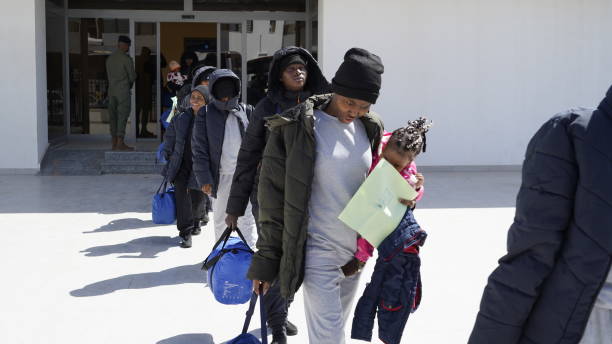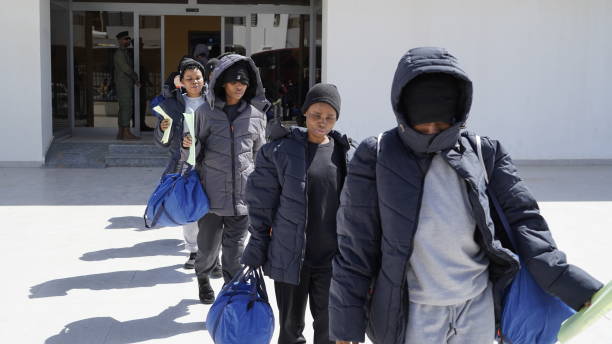A Ghanaian lawyer representing 11 West African nationals deported from the US has accused authorities of endangering his clients by sending them back to countries where they fear persecution. He said most of the men were returned to their home states despite asserting risks of torture, abuse or other inhumane treatment.
The case highlights the impact of the Trump-era expansion of deportations to “third countries” — a policy criticised by human rights groups for bypassing due process and exposing migrants to unsafe conditions. Under this approach, migrants have been sent not only to their countries of origin but also to nations such as Rwanda, Uganda and El Salvador.

Ghanaian president John Mahama confirmed last week that Accra had accepted 14 deportees and was preparing to take in 40 more. Officials initially claimed all 14 were promptly repatriated to their home states, but lawyers said 11 were instead held in poor conditions at a military camp.
Oliver Barker-Vormawor, the lawyer acting for the men, told a court hearing on Tuesday that deportations had already proceeded despite pending legal action. “This is precisely the harm we were seeking to prevent,” he said, noting that eight of the 11 had formally warned of persecution risks. According to Barker-Vormawor, six men have since been sent to Togo, while one was released to family in Ghana.
A parallel lawsuit filed in the US on 12 September claims that five other migrants deported to Ghana should have been protected from further removal to Nigeria and the Gambia. Attorneys say the men were shackled during a flight from a Louisiana detention centre without being told their destination; some were reportedly restrained in straitjackets for 16 hours. One bisexual deportee has already been sent from Ghana to the Gambia, where he went into hiding, while four others remain held in the military camp.
In a separate development, Jamaica confirmed that Orville Etoria — a man deported from the US to Eswatini (formerly Swaziland) in July after serving 24 years for murder — had been “voluntarily repatriated” to his home country on Sunday. Eswatini’s government, supported by the International Organization for Migration, said Etoria’s return was “without compulsion,” though his original deportation had also involved a group of ex-prisoners from Cuba, Laos, Vietnam and Yemen. Jamaica’s foreign minister Kamina Johnson Smith called for privacy as Etoria reintegrates.
Lawyers for five other migrants said earlier this month that they were still denied access to clients being held in a maximum-security prison in Eswatini. Meanwhile, a Mexican national once serving a life sentence for murder was quietly sent back to Mexico from South Sudan earlier this month, one of eight men the US deported there in July.
These cases reveal a pattern of opaque transfers, contested “voluntary” repatriations, and inadequate safeguards for migrants’ rights. By shifting deportees through third countries before final removal, US authorities appear to be sidestepping international obligations on non-refoulement — the prohibition against sending people to places where they face serious harm. Ghana, Eswatini and other transit countries are also under scrutiny for holding deportees in military or high-security facilities without clear legal status.



